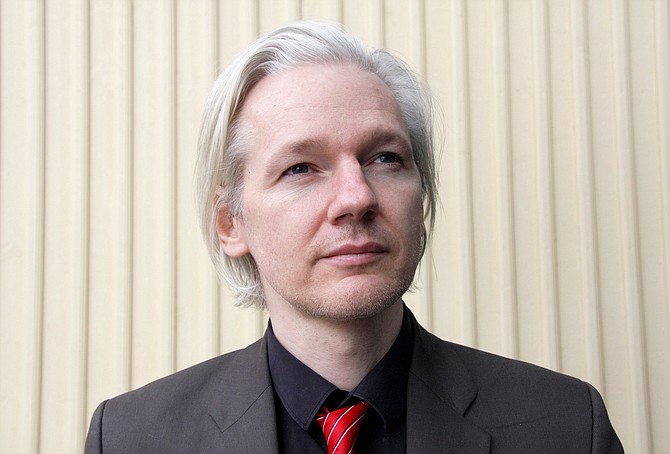Assange, 46, has been holed up in Ecuador's embassy in London since he took refuge there in June 2012 to avoid extradition to Sweden, where prosecutors were investigating allegations of sexual assault and rape made by two women in 2010. Photo courtesy Flickr Espen Moe
LONDON (AP) — A British judge on Tuesday upheld an arrest warrant for WikiLeaks founder Julian Assange, who has spent more than five years evading the law inside Ecuador's London embassy.
Judge Emma Arbuthnot rejected arguments by Assange's lawyers that it is no longer in the public interest to arrest him for jumping bail in 2012 and seeking shelter in the embassy to avoid extradition to Sweden, where prosecutors were investigating allegations of sexual assault and rape made by two women. He has denied the allegations.
Arbuthnot said Assange should come to court and make his case like any other defendant and did not mince words in leveling her decision at Westminster Magistrates' Court. She said that by jumping bail Assange had made "a determined attempt to avoid the order of the court," before rejecting each argument made by his attorneys.
"The impression I have ... is that he is a man who wants to impose his terms on the course of justice," she said. "He appears to consider himself above the normal rules of law and wants justice only if it goes in his favor."
Assange is able to appeal, but his lawyers don't yet know whether he will.
Swedish prosecutors dropped their investigation last year, saying there was no prospect of bringing Assange to Sweden in the foreseeable future. But the British warrant for violating bail conditions still stands, and Assange faces arrest if he leaves the embassy.
Assange's lawyers had asked for the warrant to be withdrawn since Sweden no longer wants him extradited, but the judge rejected their request last week.
Assange's attorney had gone on to argue that arresting him is no longer proportionate or in the public interest. Lawyer Mark Summers said that the 5½ years Assange has spent inside the embassy were "adequate, if not severe" punishment for his actions, and cited a report by a U.N. committee which said the 46-year-old was being arbitrarily detained.
He also claimed the Australian was justified in seeking refuge in the embassy because he has a legitimate fear that U.S. authorities are seeking to arrest him for WikiLeaks' publication of secret documents.
Summers also argued that Assange's actions had not stalled Sweden's legal case, because Assange had offered to be interviewed by Swedish prosecutors at the embassy. He said emails recently released after a freedom of information request showed that a British state prosecutor had advised Sweden "that it would not be prudent for Sweden to try to interview Mr. Assange in the U.K."
Some lawyers who have followed the case suggest the impasse will continue in the case.
Edward Grange, a partner at law firm Corker Binning, said the fact remained that Assange had chosen to enter the embassy to avoid arrest.
"It would be a dangerous precedent to set if the warrant could just be withdrawn on public interest grounds, because that would be seen as a reward for individuals who decide to avoid administrative justice," he said.
Assange suspects there is a secret U.S. grand jury indictment against him for WikiLeaks' publication of classified documents, and that American authorities will seek his extradition. Arbuthnot rejected that contention as well.
"I do not find that Mr. Assange's fears were reasonable," Arbuthnot said.
Another Assange lawyer, Jennifer Robinson, said the WikiLeaks chief was willing to face legal proceedings in Britain — if he receives a guarantee that he will not be sent to the U.S. to face prosecution.
"Mr. Assange remains ready to face British justice and to resolve any outstanding matters related to his seeking protection in the Ecuadorean embassy — but not at the risk of being forced to face American injustice for exercising the freedom to publish," Robinson said.
Copyright Associated Press. All rights reserved. This material may not be published, broadcast, rewritten, or redistributed.



Comments
Use the comment form below to begin a discussion about this content.
comments powered by Disqus